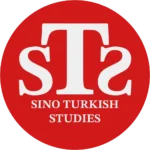China’s annual “Two Sessions,” which started on Saturday, March 4th, successfully concluded last week, marking the 14th assembly. Newly elected members of the Chinese National People’s Congress (NPC) and the Chinese People’s Political Consultative Conference (CPPCC) held the first meeting of the five-year term (2023-2027). Xi Jinping’s third-term presidency was unanimously approved in the National People’s Congress. Additionally, the senior leadership that will govern China over the next five years was determined.
WESTERN PERSPECTIVE: REFORMISTS PURGED
Since assuming the roles of General Secretary of the Communist Party of China (CPC) and the Presidency of China in 2012, under Xi Jinping’s leadership, the country has accelerated the construction of socialism with Chinese characteristics in domestic policy and became a gravitational center for international cooperation mechanisms such as the Belt and Road Initiative, the Shanghai Cooperation Organization, and BRICS in foreign policy. During this period, the United States’ declining hegemony and the geopolitical balance’s shift in favor of “oppressed nations,” especially in the Asia-Pacific, accelerated.
Following Xi’s confirmation for a third term as president, the conclusion of “reformist” figures’ terms or their non-reappointment has caused deep concern in the Western media. The Guardian described the new administration as follows: “Xi is placing loyalists in key positions amidst the biggest government reshuffle in a decade, retiring a generation of reform-minded officials, and consolidating his power following an unprecedented third term as president.”1
The Wall Street Journal commented on the new Premier Li Qiang, stating: “An instrument and perhaps an effective counterpart to fulfill Xi’s desires. However, he will not change China’s development model or convince Xi to return to market reforms.”2
The New York Times presented Xi’s third term appointments under the headline “China’s leader solidifies his dominance,” adding: “Xi signals a focus on strengthening national security and pursuing self-sufficiency in strategic technologies in response to what he perceives as US efforts to thwart China’s rise.”3
Similar comments are prevalent across almost all pro-Atlantic media. The common theme in Western media regarding the new Prime Minister, Deputy Prime Ministers, NPC Chairman, CPPCC Chairman, and the Chairman of the National Development and Reform Commission is their loyalty to Xi and their lack of moderation towards the West.
REFORMIST OR MODERATE?
The litmus test term in Western evaluations of Chinese officials is “reformist.” According to this criterion, those termed “reformists” advocated for “peaceful” solutions to issues deemed China’s soft spots, such as Taiwan, the Xinjiang Uyghur Autonomous Region, Hong Kong, and the South China Sea, and supported greater initiative for the private sector in the economy. In the West, the smear campaign against Xi primarily revolves around reducing the capitalist sector’s scope, intervening in property and distribution relations for the welfare of the people during Xi’s era. George Soros, a sponsor of color revolutions, last year declared Xi as “the biggest threat to open societies.”4
Following the Reform and Opening-Up Policy in 1978, those favoring softer relations with the West in the CPC’s two-line struggle ascended to higher positions in the administration during the 1990s, leading to an increase in the influence of neoliberal policies in China. The rise of planned economy advocates within the CPC leadership since the early 2000s culminated with Xi’s accession in 2012. Under Xi’s leadership, controls on the private sector increased, with warnings to prioritize national security and rural development strategies. The Economist’s August 15, 2020, issue described Xi’s new economy as blurring the lines between state and private sectors, with the state increasing strategic control over companies through party committees within the private sector.5 As The Economist stated, Xi Jinping’s focus on market reforms culminated in the financial system, securing government control over banking, intermediaries, and investment firms. The implemented reforms represent a series of structural changes, not merely ad hominem adjustments.
STATE CONTROL OVER MARKETS INTENSIFIES
Following a crisis in the property market, which reached its peak last year, and the brink of bankruptcy faced by Evergrande, the country’s second-largest real estate company, Xi announced measures to combat speculation in the real estate sector. The record increase in the private sector’s debt stock was a failure of the strategy to liberalize and provide more space to companies in the Chinese economy since the 1980s. The antidote to the financial and real estate sector crisis was found in increasing state intervention in the economy.
While the West continues its outcry over the “purge of reformists,” the Chinese State Council submitted a significant reform package to the National People’s Congress. In this package, which materializes the developments mentioned above, the State Council’s role in financial markets is enhanced. A National Financial Regulatory Administration
, directly under the State Council, will be established, centralizing regulation of the finance sector, excluding securities, under state control. In other words, financial regulation will be further consolidated under a single government body, leading to clearer, unified, and coordinated regulatory policies. Another development is the closure of local branches of the People’s Bank of China, with regulatory mechanisms over state-owned financial capital also being enhanced.6
RESOLVING THE MOST INTRACTABLE CRISES UNITES TEHRAN AND RIYADH
In conclusion, the development of a state-led public and planned economy in China continues to be enhanced. A stronger state domestically will benefit oppressed nations in international relations. The historic agreement between Iran and Saudi Arabia to resume diplomatic relations and reopen embassies after seven years, signed in Beijing on March 11th, signals the end of the world system brought by the US to West Asia, characterized by blood and destruction, and pitting states against each other.
As China approaches the strategy of a modern socialist country under Xi’s leadership, a new era is opening, elevating multilateral, human-centric, and sharing values in the international order. In the second session of China’s supreme legislative body, the Two Sessions, Xi targeted US imperialism, stating: “Led by the United States, Western countries have launched a comprehensive encirclement and suppression of China, posing unprecedented serious challenges to the country’s development.”7 US imperialism is not only a major obstacle to development in China but also for all oppressed regions worldwide. Xi’s commitment to transforming the People’s Liberation Army into an “iron Great Wall” is crucial for a potential armed struggle against imperialism. The appointment of Li Shangfu, who is on the US sanctions list, as Defense Minister is another challenge to the US. These developments show that humanity’s capacity to fight against imperialism is much more advanced than in the 20th century, and this strength will make the 21st century the “Asian Age.”
Finally, the opportunities created by a strong China will determine the stance of forces in government in Turkey in the coming period. Turkey has the chance to escape the Atlanticist quagmire of hot money under the guise of liberalization since the 1980s and return to Atatürk’s path with a public and planned economy within the Eurasian framework.
- https://www.theguardian.com/world/2023/mar/11/li-qiang-xi-jinping-chinas-president-nominates-next-premier ↩︎
- https://www.wsj.com/articles/chinas-new-premier-li-qiang-has-xis-ear-78415935 ↩︎
- https://www.nytimes.com/2023/03/09/world/asia/xi-economy-us-rivalry.html?name=styln-china- ↩︎
- https://www.foxbusiness.com/politics/soros-china-xi-jinping-greatest-threat-open-societies-face ↩︎
- https://www.economist.com/weeklyedition/2020-08-15 ↩︎
- http://english.www.gov.cn/statecouncil/xiaojie/202303/08/content_WS6407da4cc6d0a757729e7dc6.html ↩︎
- https://www.scmp.com/news/china/diplomacy/article/3212627/chinas-two-sessions-2023-xi-jinping-directly-accuses-us-leading-western-suppression-china?module=inline&pgtype=article ↩︎





